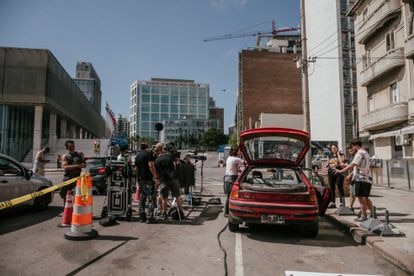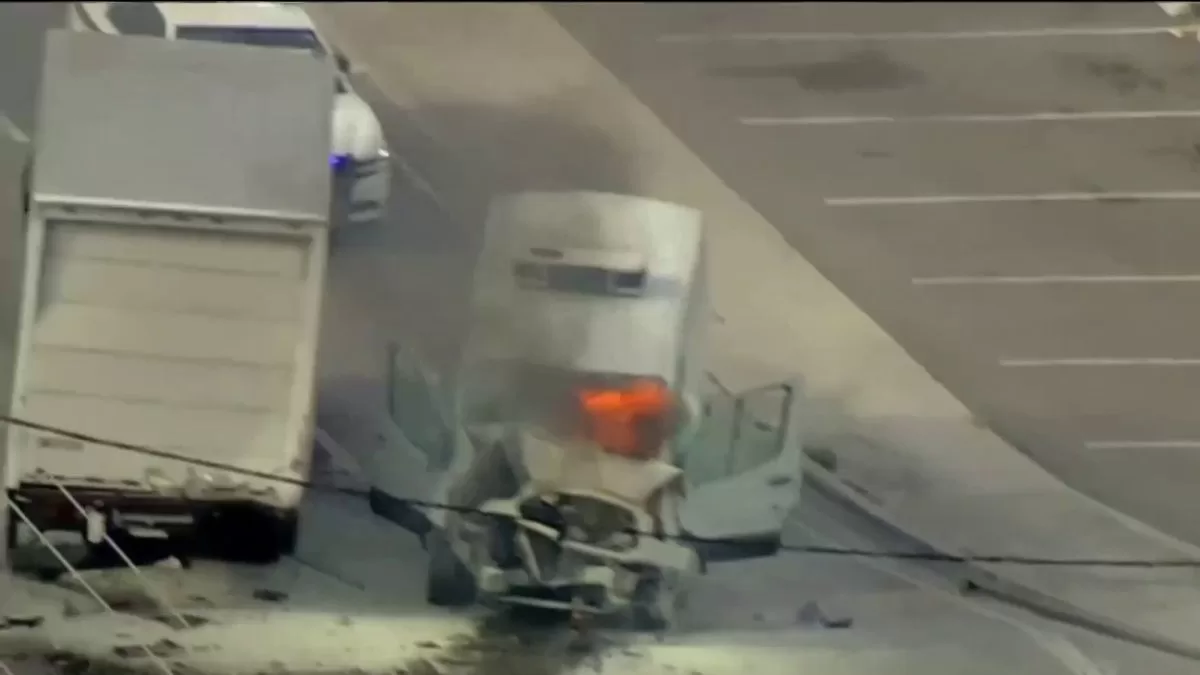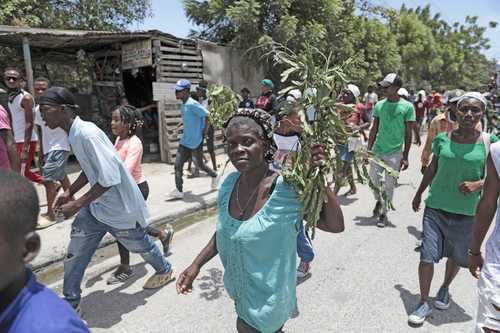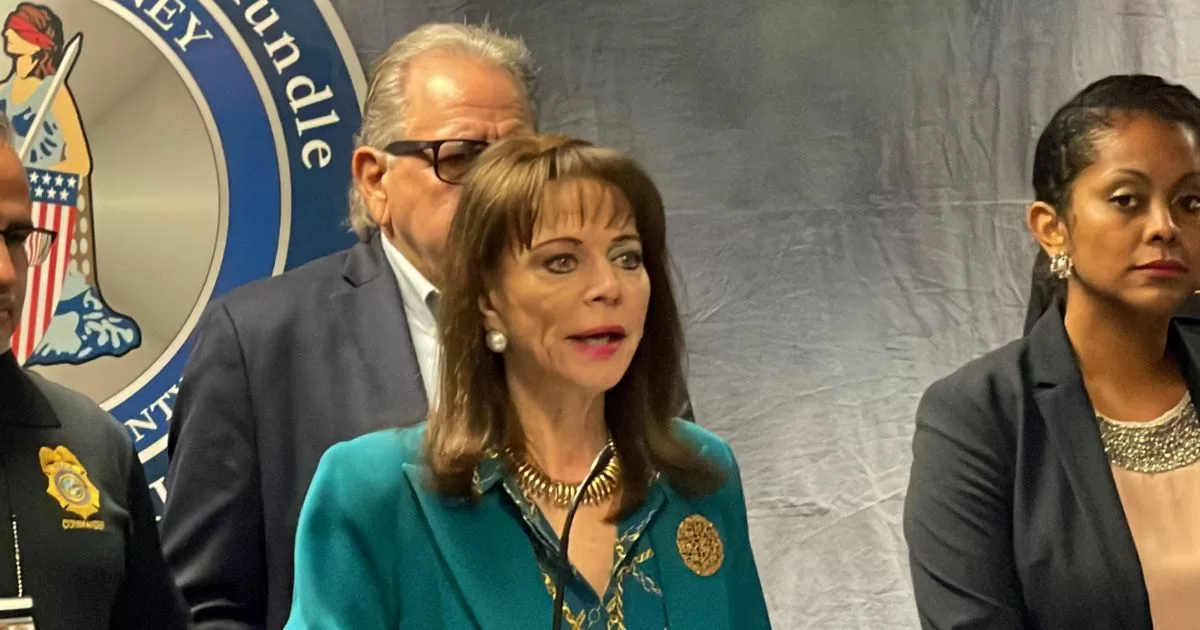The Uruguayan audiovisual industry is going through one of its best times. Uruguay, with 3.4 million inhabitants, premieres around 20 national films a year and has become, through a pandemic, the chosen destination to shoot numerous international productions. During the health emergency, giants such as Netflix, Amazon or HBO saw a good opportunity in this country to continue their projects, due to the conditions of relative normality and openness enabled by the Government of Uruguay. That caused a boom in the sector, as is reflected in the increase in filming time per year. In 2019, the audiovisual activity translated into 24 weeks of filming; in 2020 there were 40 and in 2021, 142 weeks, according to data from the Uruguayan company Musitelli Films&Digital.
“The audiovisual sector is experiencing a moment of effervescence,” says Facundo Ponce de León, president of the Uruguayan Film and Audiovisual Agency (ACAU). Part of this boom is explained by the fact that Uruguay was the only country in the region enabled to shoot during the pandemic. “That generated a volume of international productions never seen before,” he points out. But this good performance was not accidental, nor is it only due to the health situation. Ponce de León highlights that Uruguay offers a virtuous combination of well-directed public policies, technical and artistic talent. Added to this, short distances and the variety of locations within a few km are in your favor. “Uruguay has to see itself as a big movie set,” he says.
After the pandemic hit, there are some 1,000 companies linked to the audiovisual sector in the country, which generate 3,900 direct jobs, according to the ACAU. This year they expect to complete, adding different productions, 100 weeks of filming. Among those of international size, the series Amia, about the terrorist attacks that occurred in Argentina in 1992 and 1994, and the film The disappearance, which includes the passage of the Nazi doctor Josef Mengele through those latitudes. In addition, Uruguay offered several original locations to The Snow Society (Netflix) feature film about the tragedy of the Andes of 1972. The film, directed by the Spanish Juan Antonio Bayona, had the production service of cimarronone of the main benchmarks in the sector in Uruguay.
“Filming here is comfortable, in general everything goes as planned,” says Santiago López, a partner at Cimarrón. In this sense, he underlines the social, institutional and financial stability of Uruguay, as the engine of this takeoff of the audiovisual industry. In 2022, he maintains, the production company generated 3,500 jobs, especially for technicians, not counting the actors or extras. For example, they carried out the production of the series barrabrava (Amazon) about a gang inmate at a soccer club in Buenos Aires; They were also in charge of Amsterdam (HBO Max) a series shot in the studios Reducto Films of Montevideo for Mexico, which had the incentive of the Uruguay Audiovisual Program (SPIKE).
“This is an industry that would disappear if it didn’t have public policy behind it,” says López in reference to the PUA. Launched in 2019 under the administration of the Broad Front (center-left), this program initially had a fund of 4 million dollars, to encourage national and international productions. With the arrival of the new government (a center-right coalition), the program was maintained and the fund increased to the current $12 million. Uruguay, like many countries in the region, implemented a series of incentives to support the audiovisual industry, reimbursing the national or foreign producer for a percentage of the expenses incurred in Uruguay or exempting them from paying VAT.
Join EL PAÍS to follow all the news and read without limits.
subscribe
Ernesto Musitelli, a partner at Musitelli Film&Digital, believes that the country did well after the boom in projects carried out during the pandemic and is prepared for new ones to continue arriving from countries such as Brazil, Argentina, Mexico or Spain. “Uruguay has positioned itself as an interesting regional production center to support projects in the region, while developing its own products and works,” he says. Musitelli highlights the creativity and talent that exists in this country, the infrastructure and the capacity of its technicians. And not a minor fact, he adds, is that the production companies come across a friendly society with this type of project.
Uruguay does not have snow, large lakes or mountains, but it can boast of its almost endless ocean beaches, the old charm of Colonia del Sacramento or the bucolic landscapes of its Villa Serrana. And among the most precious is Montevideo, which has surprised more than one cinematographer with an eclectic architectural heritage favored by graceful light. In its historic center, for example, superb corners with European airs coexist, old balconies typical of Havana or Art Deco portals that are related to New York.
The realization in Montevideo of the series President (Amazon) on the FIFA bribery scandal, is a sample of the photographic potential of the Uruguayan capital. Gabriel Peveroni, coordinator of Montevideo Audiovisual, explains that during that filming the city’s hippodrome was converted into a 1936 Berlin building; Some streets in the old town were given the color of an Asian market and the main avenue was a Japanese street for one night. “250 locations were set up in four months of work for that production,” says Peveroni. In the last four years, he points out, the city has multiplied the number of filming days per year by approximately four (from 300 to 1,200), which is explained by the filming of 6 or 7 international series and about 4 large-scale films per year.
Peveroni highlights the impact that these series and films have had on local technical capacity, which has had to catch up with the great demand. In 2020, he exemplifies him, several of these productions included a strong foreign presence in some technical areas and in the direction of areas. Three years later, continues Peveroni, similar productions are carried out almost 100% with Uruguayan technicians, even with Uruguayan production and script development for series set in Argentina and their distribution in Latin America, as is the case of Amia.

From the Film and Audiovisual Agency, Ponce de León agrees in valuing this dynamic that has been generated between local talent with productions that come from abroad. “One of the objectives of the agency is to ensure that this false opposition between the two does not occur. From public policy we underline that intersection between the industrial and the cultural, the production service and the work ”, he concludes.
Subscribe here to the EL PAÍS America newsletter and receive all the latest news in the region.







